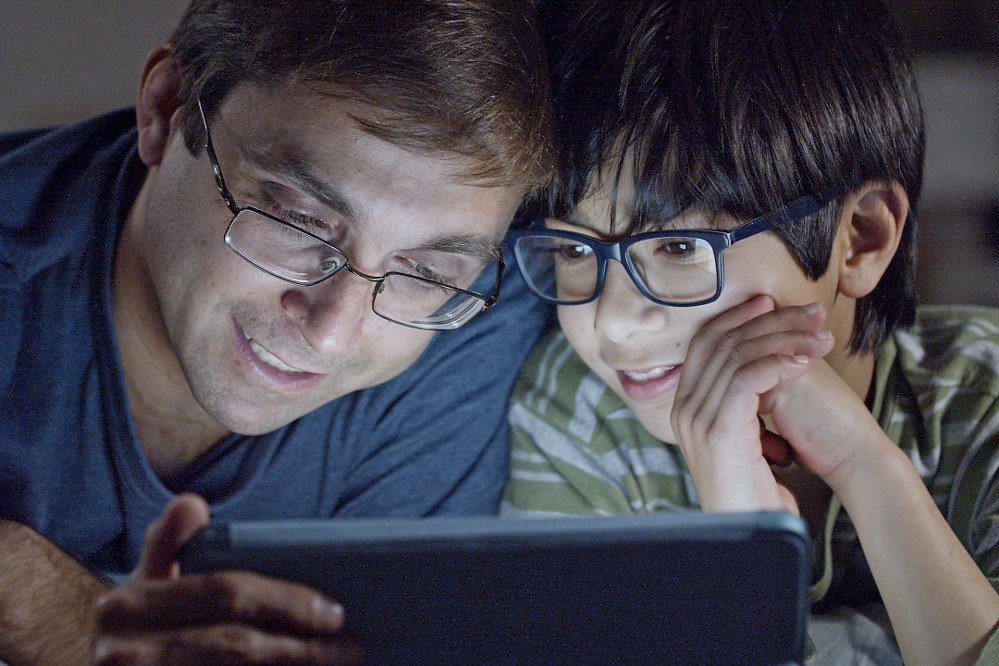If someone had asked you about digital media before having children, you would most likely have said that your kids won’t own digital devices until the age of at least 12. You would also have launched into a tirade about how children’s young brains can’t fully grasp the rules of being digital citizens.
Fast forward ten years or so, and you have kids that are practically attached to their digital devices, not least because they need them to do their homework and studies. You might also want your children to feel socially connected and allow them to use smartphones and tablets to stay in touch with friends. You are aware that screens have become a part of your children’s lives, and you tell them to be cautious when they browse the Internet. But it’s easy to forget for parents, especially single parents who are juggling children, work, and household chores solo, to teach the little ones just how dangerous the digital universe is – until bad things happen.
7 Tips to keep the kids safe online
Keeping your kids safe online starts with teaching them how to be digital citizens from a young age. Here are our top tips on how to get started:
1. Spend time together online
Your children talk all day about the things they like, and that includes popular TV shows, and favourite online games. Use this as a starting point to identify an online activity you could do together. While playing an online game or watching a TV series, use that opportunity to discuss online safety. Ask them questions about their best-loved online games and websites and show enthusiasm about engaging in the activities they find interesting to determine how they behave online. This will make it easier to talk about online security with them.
The Internet offers countless opportunities to have fun with your child and spend quality time together, so play their favourite games, travel the world from your living room or cheer them on while they play them with their friends. Getting involved with their online activities gives you the opportunity to monitor their online experience.
2. Watch online safety tutorials with your kids
If you don’t know how to start a conversation about online security with your children, you can watch a short video together and discuss the issues presented. You can find several resources online for children of all ages. For children younger than 7, you can watch cartoons together that provide an introduction to online safety. Older kids can watch animations and even play games that will teach kids the basic principles of cyber security.
Making your children aware of the cyber threats lurking online is crucial. When you choose tutorials to watch together, search for content that discusses topics, such as online bullying, spending money without permission, grooming, potential scams, messaging people they don’t know, and even how to avoid seeing things that might upset them. Ensure you discuss the topic presented in the tutorial with them to find out if they have further questions and fully understand the dangers and consequences for victims of bullying, scams, etc. If you need more information about online threats, you can access resources like https://www.databreachcompensationexpert.co.uk/data-breach-compensation/ that offer data not only about online threats but also about how to deal with the consequences of a data breach.
3. Establish rules around accessing digital devices
One crucial rule to establish is that your children should always ask for permission before using a digital device or going online, as they would if they wanted to visit a friend’s house. By asking them to get permission first, you send a message – namely, that their screen time is monitored.
Besides this rule, you can establish several other ones that suit your family’s dynamic. You could, for example, ask them to use internet-connected devices only in the common rooms, such as the lounge and kitchen rather than taking smartphones and tablets to their rooms. If they do need to access the Internet to do their homework, you can allow them to use their smart devices in their rooms for specific activities like reading, but if they want to chat online with their friends or play games, they have to do it in a common area. It might sound intrusive, but it’s similar to managing real-life playdates when you would pop in from time to time to bring them snacks and ensure they are fine.
4. Set time limits
If your children need screens to do certain activities, make sure you have rules on the length of time they are allowed to use internet-connected devices. You can set time limits on most digital devices either through settings or through a parental control software or an apps.
Similarly, if you need to entertain them while working from home, but want to control their activity, start a TV show for them, and take the remote control, so they cannot switch programmes or start scrolling through YouTube on the TV. You would be surprised how quickly even young kids can figure out how to navigate the menu.
5. Teach your children to be suspicious
The Internet is a great source of information and can be very educational for children. Unfortunately, it also exposes children to a great amount of false and often disturbing information. Everyone can post what they like on the Internet and your children and teenagers must be aware that not everything they read or hear online is true. It’s crucial to teach your kids the ability to differentiate between accurate and false information. They also need to be able to spot which sources are reliable, which ones are likely biased, and which ones are there to spread false information, negativity, hatred, etc. Sit down with them, do a Google search, and ask them which sites they think give them accurate answers. Point out to them which sites are reliable and which ones likely are not. Don’t forget to warn them that off ads, too-good-to-be-true offers and free online activities for kids that contain in app purchases and add-ons that cost money. Ask them to never to purchase products or services without asking for an adult’s approval first.
6. Determine what you are comfortable with
Have a think about what you are comfortable and not comfortable with in terms of your children’s online activities, so you can establish clear rules. For example, if you want to make sure that the kids don’t engage with strangers, carefully select the apps they can access. You can sign up for kids’ apps that require an adult to review and approve any chat they might have to join when the other party isn’t part of your pre-approved contact list. You might also not be comfortable with your children using platforms like YouTube because inappropriate content can easily slip through, even on YouTube Kids. Limit their use of particular websites and apps and ask them to use them only in common areas.
7. Get your kids to think about their online behaviour
Because we all feel more anonymous when they browse the Internet, your children might not behave in the same way as they would in the real world. Talk to your kids about this, so they can understand that they should engage with Internet users as they would in the real world i.e. treating everyone with kindness and respect.
Final thoughts:
Monitoring screen time and online activities is no easy task in today’s digital world. Parents carry a huge responsibility raising children in today’s environment, and educating their children on the opportunities and dangers of the Internet is just one of many tasks they need to deal master. We hope our tips on how to teach children to stay safe online and become responsible digital citizens have helped a little!
About the author – Single Parents on Holiday:
Single Parents on Holiday is the only UK tour operator offering single parent group holidays in the UK and abroad. In addition, we also provide singles holidays for our single parent empty nesters, single parents who want to have a break and travel without the kids and any other solo travellers. These holidays are exclusively for adults. For more information go to singles holidays over 50.
If you liked this article, why not subscribe to our blog? We publish one post per week on average and you can unsubscribe at any time.